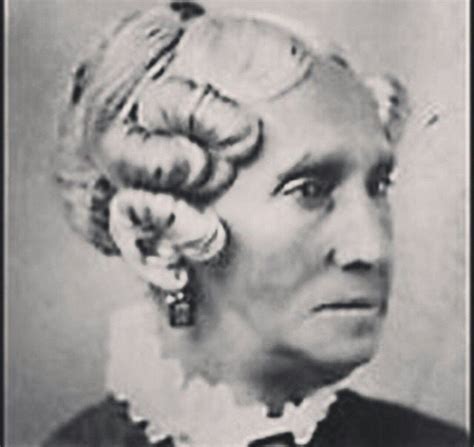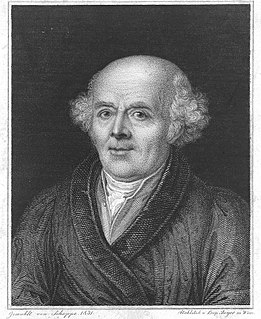Top 636 Imitate Quotes & Sayings - Page 11
Explore popular Imitate quotes.
Last updated on April 16, 2025.
One of the commonest causes of failure in Christian life is found in the attempt to follow some good man whom we greatly admire. No man and no woman, no matter how good, can be safely followed. If we follow any man or woman, we are bound to go astray. There has been but one absolutely perfect Man on this earth-the Man Christ Jesus. If we try to follow any other man we are surer to imitate his faults than his excellencies. Look to Jesus and Jesus only as your Guide.
You go out into the world, you read everything you can read, you imitate the things you love, and you learn how hard it is to do. Eventually, you learn your own vision of the world, you learn your own voice and how to hear it, and you learn to write your own work. Writers today have as many opportunities as my generation did, but they don't see the examples as clearly as we did.
In peace there's nothing so becomes a man As modest stillness and humility: But when the blast of war blows in our ears, Then imitate the action of the tiger; Stiffen the sinews, summon up the blood, Disguise fair nature with hard-favour'd rage; Then lend the eye a terrible aspect; . . . . Now set the teeth and stretch the nostril wide, Hold hard the breath and bend up every spirit To his full height. On, on, you noblest English.
The whole ecosystem of celebrity has broken down for writers. If you go back to the '50s, '60s, and '70s, writers were on TV a lot, and they were allowed to misbehave a lot. Truman Capote was a pop figure, but it wasn't until he went on David Susskind's show and had that extraordinary voice and manner that everyone could imitate, that he really took off as a figure. Norman Mailer and Vidal, the same thing. The bestselling writers now, there's no great animal energy with them.
Our children, Edward, Agnes, and little Mary, promise well; their education, for the time being, is chiefly committed to me; and they shall want no good thing that a mother's care can give.
Our modest income is amply sufficient for our requirements; and by practising the economy we learnt in harder times, and never attempting to imitate our richer neighbours, we manage not only to enjoy comfort and contentment ourselves, but to have every year something to lay by for our children, and something to give to those who need it.
And now I think I have said sufficient.
My brethren, let me say, be like Christ at all times. Imitate him in "public." Most of us live in some sort of public capacity-many of us are called to work before our fellow-men every day. We are watched; our words are caught; our lives are examined-taken to pieces. The eagle-eyed, argus-eyed world observes everything we do, and sharp critics are upon us. Let us live the life of Christ in public. Let us take care that we exhibit our Master, and not ourselves-so that we can say, "It is no longer I that live, but Christ that lives in me."
I say with pride that I've done over a hundred voices or something, and some of them may have only had two or three lines, but I literally never ran out. I think I'm a bit of a savant that way. I kind of remember every voice I hear, famous or otherwise, and can imitate it pretty fast. I've enjoyed mimicking people famous and not famous all through my life, and they kind of remain in the memory banks, so I'm ready to trot them out.
Caring. And reading the Bible, learning about God, Jesus, love. He said, 'Bring on the children', 'Imitate the children', 'Be like the children' and 'Take care of others.' Take care of old people. And we were raised with those values. Those are very important values and my family and I we were raised with those values and they continue strong in us today.
One of the surest tests of the superiority or inferiority of a poet is the way in which a poet borrows. Immature poets imitate mature poets steal bad poets deface what they take and good poets make it into something better or at least something different. The good poet welds his theft into a whole of feeling which is unique utterly different than that from which it is torn the bad poet throws it into something which has no cohesion. A good poet will usually borrow from authors remote in time or alien in language or diverse in interest.
Few scientists acquainted with the chemistry of biological systems at the molecular level can avoid being inspired. Evolution has produced chemical compounds exquisitely organized to accomplish the most complicated and delicate of tasks. Many organic chemists viewing crystal structures of enzyme systems or nucleic acids and knowing the marvels of specificity of the immune systems must dream of designing and synthesizing simpler organic compounds that imitate working features of these naturally occurring compounds.
A wise man ought always to follow the paths beaten by great men, and to imitate those who have been supreme, so that if his ability does not equal theirs, at least it will savor of it. Let him act like the clever archers who, designing to hit the mark which yet appears too far distant, and knowing the limits to which the strength of their bow attains, take aim much higher than the mark, not to reach by their strength or arrow to so great a height, but to be able with the aid of so high an aim to hit the mark they wish to reach.
Yet I'm sure there's something more to be read in a man. People dare not -- they dare not turn the page. The laws of mimicry -- I call them the laws of fear. People are afraid to find themselves alone, and don't find themselves at all. I hate this moral agoraphobia -- it's the worst kind of cowardice. You can't create something without being alone. But who's trying to create here? What seems different in yourself: that's the one rare thing you possess, the one thing which gives each of us his worth; and that's just what we try to suppress. We imitate. And we claim to love life.
Love is the all-or-nothing of the kingdom of God. Above all we are to love (Col. 3:14; 1 Peter 4:8). Everything we do is to be done in love and, thus, communicate love (1 Cor. 16:14). We are to imitate God by living in Christlike love (Eph. 5:1–2), and if we do this, we fulfill the whole law (Matt. 22:37–40; Rom. 13:8–10). If we lack this, everything else we do is devoid of kingdom value, however impressive it might otherwise be (1 Cor. 13:1–3).
The gods have fled, I know. My sense is the gods have always been essentially absent. I do not believe human beings have played games or sports from the beginning merely to summon or to please or to appease the gods. If anthropologists and historians believe that, it is because they believe whatever they have been able to recover about what humankind told the gods humankind was doing. I believe we have played games, and watched games, to imitate the gods, to become godlike in our worship of eachother and, through those moments of transmutation, to know for an instant what the gods know.
Write what you want to read. So many people think they need to write a particular kind of book, or imitate a successful style, in order to be published. I've known people who felt they had to model their book on existing blockbusters, or write in a genre that's supposed to be "hot right now" in order to get agents and publishers interested. But if you're writing in a genre you don't like, or modeling yourself on a book you don't respect, it'll show through. You're your first, most important reader, so write the book that reader really wants to read.
Possess the spirit of independence. The Americans do, and why should not you? Possess the spirit of men, bold and enterprising, fearless and undaunted. Sue for your rights and privileges. Know the reason that you cannot attain them. Weary them with your importunities. You can but die, if you make the attempt; we shall certainly die if you do not. The Americans have practised nothing but head-work these 200 years, and we have done their drudgery. And is it not high time for us to imitate their examples, and practise head-work too, and keep what we have got, and get what we can?
1) Temperance... drink not to elevation. (2) Silence... avoid trifling conversations. (3) Order: Let all your things have their places... (4) Resolution... perform without fail what you resolve. (5) Frugality... i.e. waste nothing. (6) Industry: Lose no time; be always employ'd... (7) Sincerity: Use no hurtful deceit; think innocently... (8) Justice: Wrong none by doing injuries... (9) Moderation: Avoid extremes; forbear resenting... (10) Cleanliness: Tolerate no uncleanliness in body... (11) Tranquility: Be not disturbed at trifles... (12) Chastity (13) Humility : Imitate Jesus.
The house as I say ... smelled of brisket and bourbon, so you could hear that. I started imitating them. Phrases came out of that, "Can't you dig that?" "I knew that you would." We were at [Passover] Seders and they were confused with the bitter herbs, "Do we smoke these or do we do we dip them in salt water?" "We dip them in salt water, well that's gonna kill the vibrancy of the weed, you know." So that's what I was around. So I would imitate them. That's where it all started.
The Lord called me by the way of simplicity and humility, and this way He hath shown me in truth for me and those who will believe and imitate me. And therefore I would that ye name not to me any rule, neither of St. Augustine, nor St. Benedict, nor of Bernard, nor any way or form of living, but that which was mercifully shown and given me by the Lord.
Joss Whedon writes beautiful drama. His sensitivity and his sense of drama and scenes are pretty exceptional. There's no one else writing like him, really, in sci-fi and TV. That's not to say there are no astonishing writers on TV. I was nervous about coming to America and playing an English person who speaks very English when all the writers are American, because it's a very particular thing to imitate, and if it's badly imitated, it sounds painfully contorted and silly. And he writes very well for English people. It was Joss Whedon who persuaded me.
Imitation is very easy, and the whole culture and society depends on imitation. Everybody is telling you how to behave, and whatsoever they are teaching you is nothing but imitation. Religious people - the so-called religious people, the priests, the theologians - they are also teaching you, `Be like Jesus, be like Buddha, be like Krishna.` Nobody ever tells you, `Just be yourself` - nobody. Everybody is against you, it seems. Nobody allows you to be yourself, nobody gives you any freedom. You can be in this world, but you must imitate somebody.
...Now since you are celebrating the holy Pascha, you should know, brethren, what the Pascha is. Pascha means the crossing-over, and so the Festival is called by this name. For it was on this day that the Children of Israel crossed over out of Egypt, and the Son of God crossed over from this world to His Father. What gain is it to celebrate unless you imitate Him Whom you worship; that is, unless you cross over from Egypt, that is, from the darkness of evildoing to the light of virtue, from the love of this world to the love of your heavenly home?
It is generally supposed that where there is no QUOTATION, there will be found most originality; and as people like to lay out their money according to their notions, our writers usually furnish their pages rapidly with the productions of their own soil: they run up a quickset hedge, or plant a poplar, and get trees and hedges of this fashion much faster than the former landlords procured their timber. The greater part of our writers, in consequence, have become so original, that no one cares to imitate them; and those who never quote, in return are never quoted!
Every effective drug provokes in the human body a sort of disease of its own, and the stronger the drug, the more characteristic, and the more marked and more violent the disease. We should imitate nature, which sometimes cures a chronic affliction with another supervening disease, and prescribe for the illness we wish to cure, especially if chronic, a drug with power to provoke another, artificial disease, as similar as possible, and the former disease will be cured: fight like with like.
As God illumines all people equally with the light of the sun, so do those who desire to imitate God let shine an equal ray of love on all people. For wherever love disappears, hatred immediately appears in its place. And if God is love, then hatred is the devil. Therefore as one who has love has God within himself, so he who has hatred within himself nurtures the devil within himself.
I think the beauty of the film industry is that if another person tries to become another person or act like another person or imitate another person, they don't really get too far. When that person starts to realize who they are and what they can bring to the table, they start to blossom and grow. With that, it's not so much me looking towards my predecessors who have paved the way in the industry - it's more getting inspired. I get little bits and pieces of what I can take from any and everybody.
In our own times, you see, an emperor came to the city of Rome, where there's the temple of an emperor, where there's a fisherman's tomb. And so that pious and Christian emperor, wishing to beg for health, for salvation from the Lord, did not proceed to the temple of a proud emperor, but to the tomb of a fisherman, where he could imitate that fisherman in humility, so that he, being thus approached, might then obtain something from the Lord, which a haughty emperor would be quite unable to earn.
Friendship Never explain -- your friends do not need it, and your enemies will not believe it anyway. A real friend never gets in your way, unless you happen to be on the way down. A friend is someone you can do nothing with and enjoy it. However much we guard ourselves against it, we tend to shape ourselves in the image others have of us. It is not so much the example of others we imitate, as the reflection of ourselves in their eyes and the echo of ourselves in their words.
In organized groups such as the army or the Church there is either no mention of love whatsoever between the members, or it is expressed only in a sublimated and indirect way, through the mediation of some religious imagine in the love of whom the members unite and whose all-embracing love they are supposed to imitate in their attitude towards each other. It is one of the basic tenets of fascist leadership to keep primary libidinal energy on an unconscious level so as to divert its manifestations in a way suitable to political ends.
If you look into the way that materials are used in an ecological system you'll notice that you'll find that there is no waste. The waste of one organism becomes food for another and everything's recycled in an ecological system whereas in our human built environment there's a throughput system. We use something then we throw it away... We have to imitate nature and try to re-use everything we make as human beings or recycle them - when we cannot re-use or recycle them we should try to reintegrate them back into the natural environment.
Niepokalanow is a home like Nazareth. The Father is God the Father, the mother and mistress of the home is the Immaculata, the firstborn son and our brother is Jesus in the most Holy Sacrament of the altar. All the younger brothers try to imitate the elder Brother in love and honor towards God and the Immaculata, our common parents, and from the Immaculata they try to love the divine elder Brother, the ideal of sanctity who deigned to come down from heaven to be incarnated in her and to live with us in the tabernacle.
Yes, I am one of those people who feels that most of my work is adaptation of one sort or another. For me, it's a way to jump-start the engine. For example, some people use the technique of basing a character on a friend. They start writing with his or her voice, then at a certain point, the character takes off on his or her own. It probably no longer resembles the model, but it helped the author to get going. I find that's true of form, too. For every play I've written, I know what play I was trying to imitate. That helps me get going.
He will be the best Christian who has Christ for his Master, and truly follows Him. Some are disciples of the church, others are disciples of the minister, and a third sort are disciples of their own thoughts; he is the wise man who sits at Jesus' feet and learns of Him, with the resolve to follow His teaching and imitate His example. He who tries to learn of Jesus Himself, taking the very words from the Lord's own lips, binding himself to believe whatsoever the Lord hath taught and to do whatsoever He hath commanded-he I say, is the stable Christian.
Psychologists would say that the only two important forms of social learning are imitation and teaching, and they will spend time trying to figure out if animals imitate or teach. Sometimes they find they do; sometimes they find they don't. And so that's kind of the level of controversy there. Biologists would include imitation and teaching and a range of other kinds of social learning. So we would call that culture, whereas the psychologist wouldn't.
Most comics are not truly rebellious or creatively free. Most comics, paintings, music, etc., are derivative of other, more successful works. And it's quite often that those without much rebellious spirit are the ones to imitate it. Genuine radical expression is hard to come by, but it usually crops up when money is not a motivating factor. You can take all the liberties you want when someone else's dime is not at stake. The validation is not a threat to comics. A far greater threat to the creative freedom of artists working in any medium is self-consciousness and self-censorship.


































